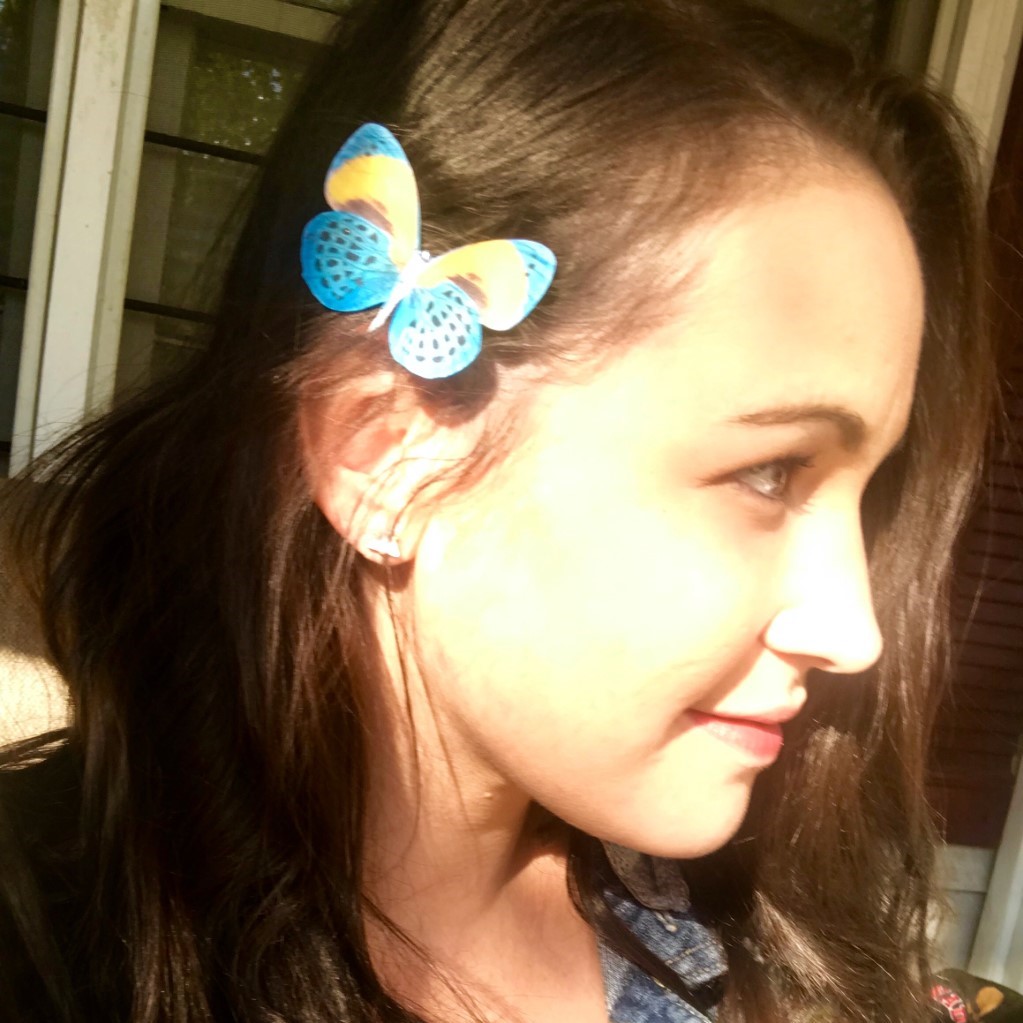Providing Answers, Support and Hope in Georgia
Thirty-One Faces of Hope: Amanda Moore
The lupus community includes people living with lupus, friends, family and supporters across Georgia. For Lupus Awareness Month, we would like to highlight some of our lupus heroes and champions.
Amanda Moore

I was diagnosed with Systemic Lupus Erythematosus about 3 years ago. My immune system mistakenly attacks healthy tissue in my body causing inflammation and organ damage. My symptoms include joint pain & swelling, memory loss, fatigue, photosensitivity, skin lesions, malar (butterfly) rash, headaches, dry mouth/eyes and fever.
Lupus is incredibly hard to diagnose because the symptoms differ greatly from person to person and there is no single test for it and there is currently no cure. I was one of the lucky ones who got diagnosed a little over a year after my first symptom began. Most girls with this disease aren’t that lucky. The average time to receive a diagnosis is 6 years.
My diagnosis process was traumatizing and I still struggle with repercussions from it. Doctors told me I was depressed, imagining it or just trying to score pain meds. When enough people tell you that you’re delusional, you start to believe it. I still doubt myself and my instincts today. I was in so much pain, but it was invisible to everyone else. 2017 was a lonely year filled with frustration and tears. When I finally received my diagnosis, I was relieved. I thought having a name for my pain would solve everything, but autoimmune diseases are extremely daunting. They change everything. And then some.
I lost my independence, my freedom and myself when I got sick. I still struggle with my new normal every day. I constantly feel like I’m stuck in limbo, just waiting for my next health complication to arise. I feel like I’m always on the run, trying to escape the enemy- which is hard to do since the enemy is my own body. It’s hard to wrap my head around the betrayal my immune system has put me through. On top of lupus, I have also been diagnosed with Sjögren's Syndrome, anxiety and major depressive disorder.
Drinking became a nice escape. Get drunk - feel nothing - repeat. I did that for a couple of years until I finally hit rock bottom. I’m beyond lucky that I have two best friends that never gave up on me and got me the help I desperately needed. I’m proud to say that as of today, I‘m 105 days sober. I’m only sharing this in order to be as honest as possible about what happened to me when I allowed my depression and resentment to control me. By turning to substance abuse, I lost myself and most of the progress I had worked tirelessly to achieve. My overall health has improved tremendously since I stopped drinking. I finally began focusing on the emotional toll that accompanies a life changing diagnosis.
Being chronically ill affects my mental health just as much as it affects my physical health (if not more). I always try to be conscious of how I speak to myself, but I’m only human. I really believe that the effects of lupus ripple out and affect every cell in my body. Depression and anxiety come hand in hand with unpredictable diseases. I have to work on my mental health every single day. It’s important to be able to realize when things get too hard to handle alone and to know when I need to seek out support. I used to be too proud to ask for help and change is rarely easy.
I check in with myself all of the time. I’m getting better at predicting what my body needs. I’m working hard to listen when it whispers so I never have to experience it screaming for help ever again. My mental and emotional health directly impacts my physical health so I need to continue working on all parts of me. I see a psychiatrist that specializes in chronic illnesses and I stay involved in support groups as much as possible.
Talking through the hard stuff with people that truly understand is the BEST medicine. For anyone who has recently been diagnosed, know you’re not alone. Try your best not to put your emotions and mental well-being on the back burner. I know it’s all so new and confusing. The Georgia Chapter of the Lupus Foundation of America makes it easy to find a strong support group of people who get it. Peers who are willing to help you when things get scary because they’ve been right where you are. The Lupus Foundation of America provides so many opportunities for patients to educate themselves and engage with the local lupus community. Even on my sickest days, I am comforted knowing that I can reach out and always be met with overwhelming support and advice.
-Amanda Moore



